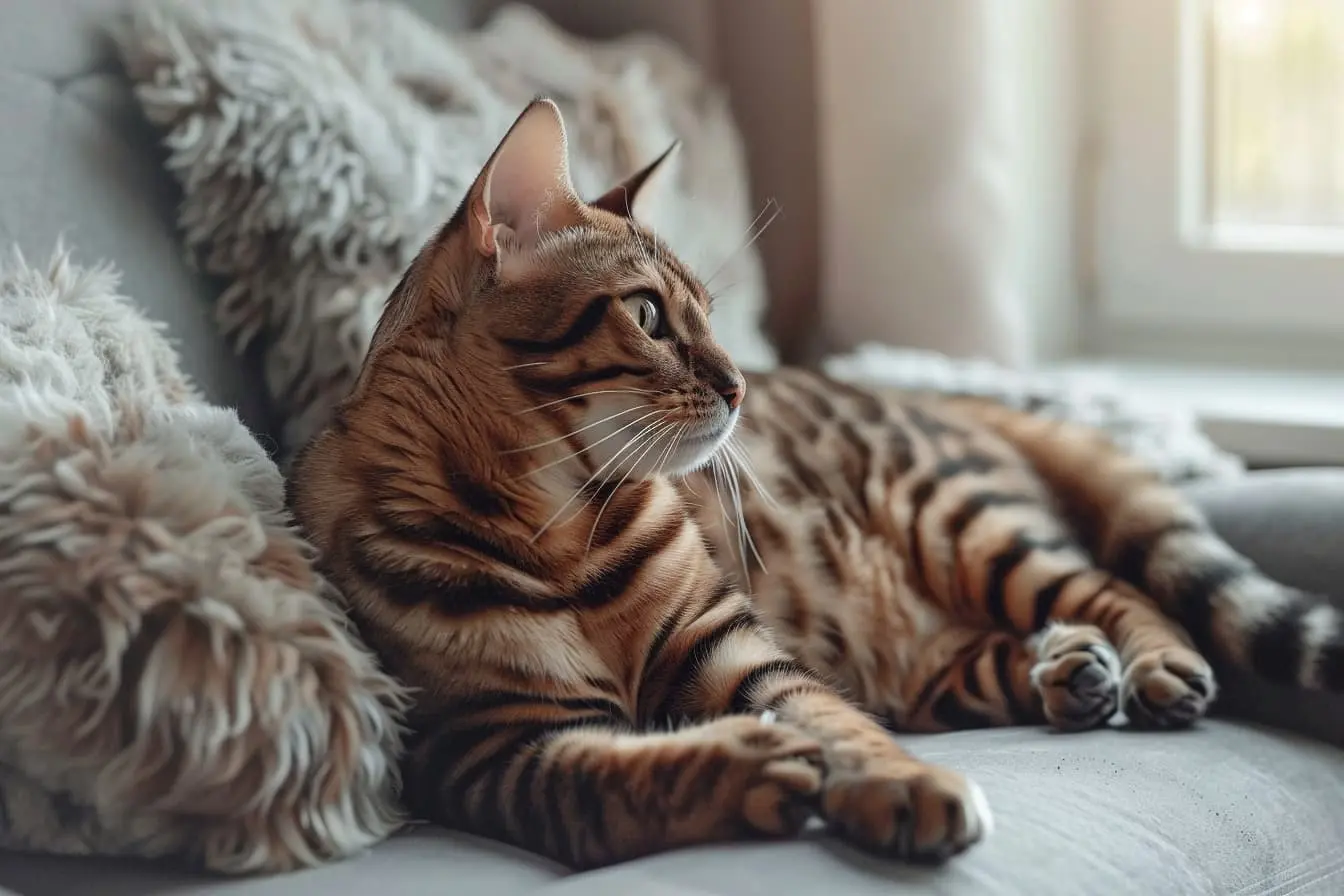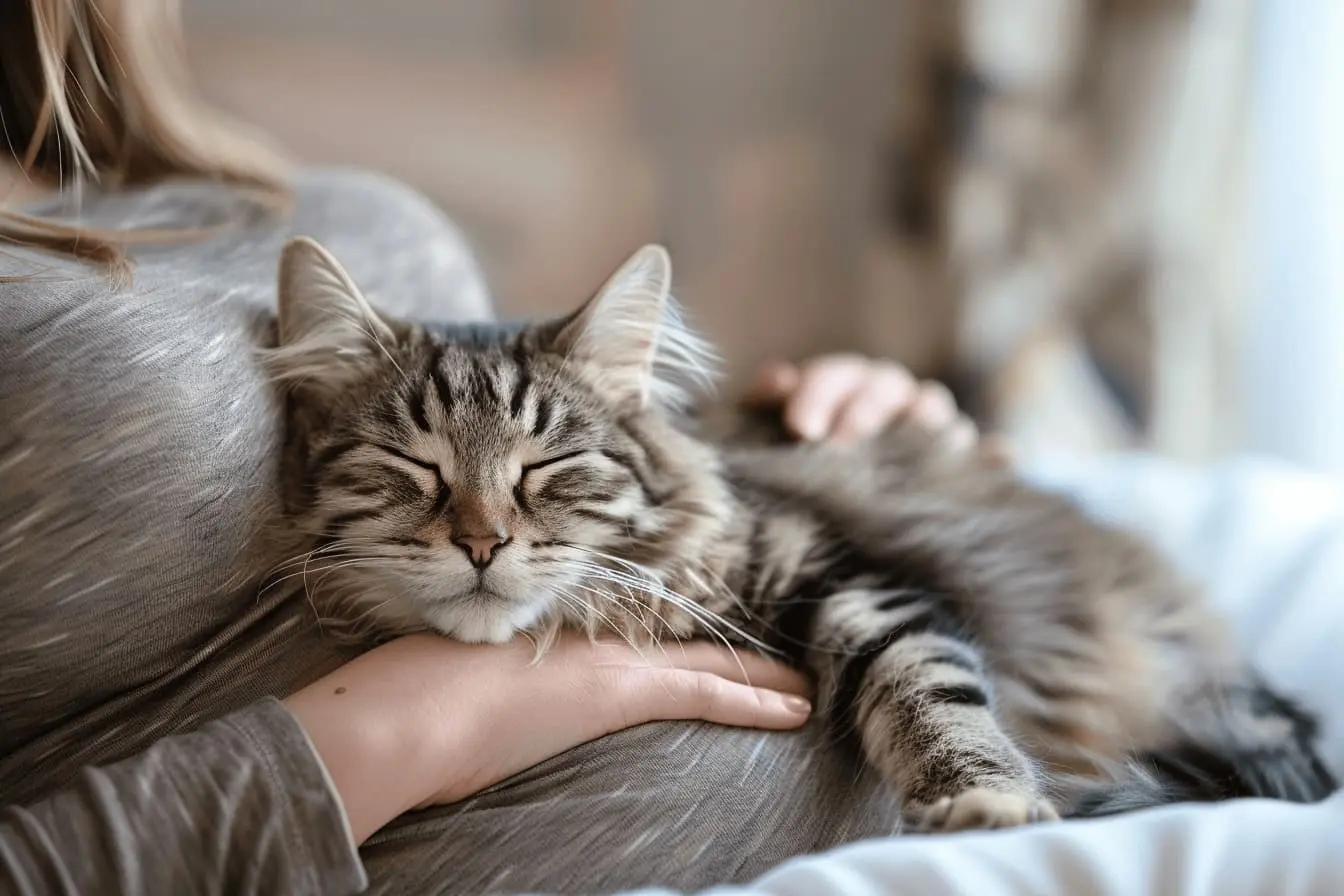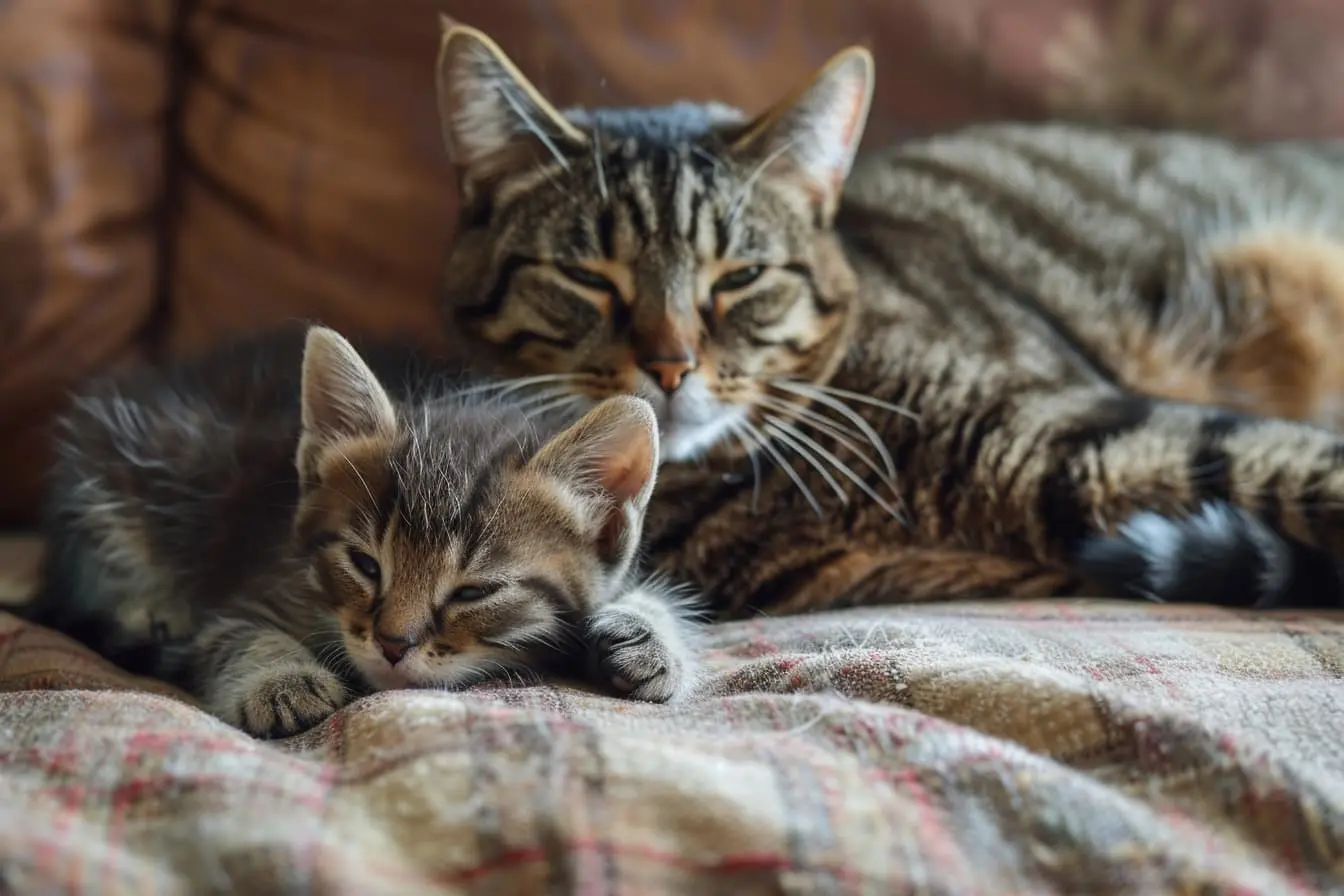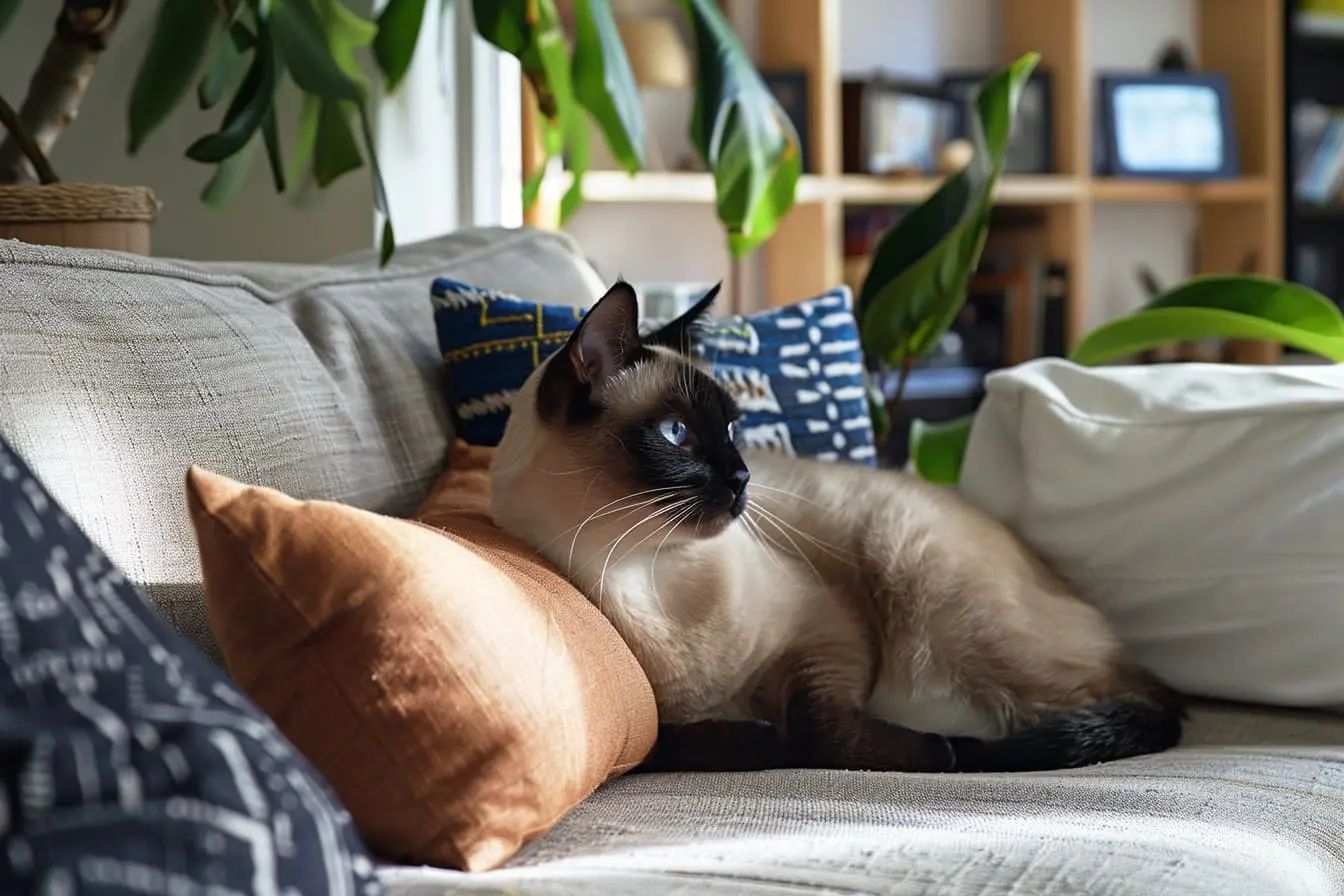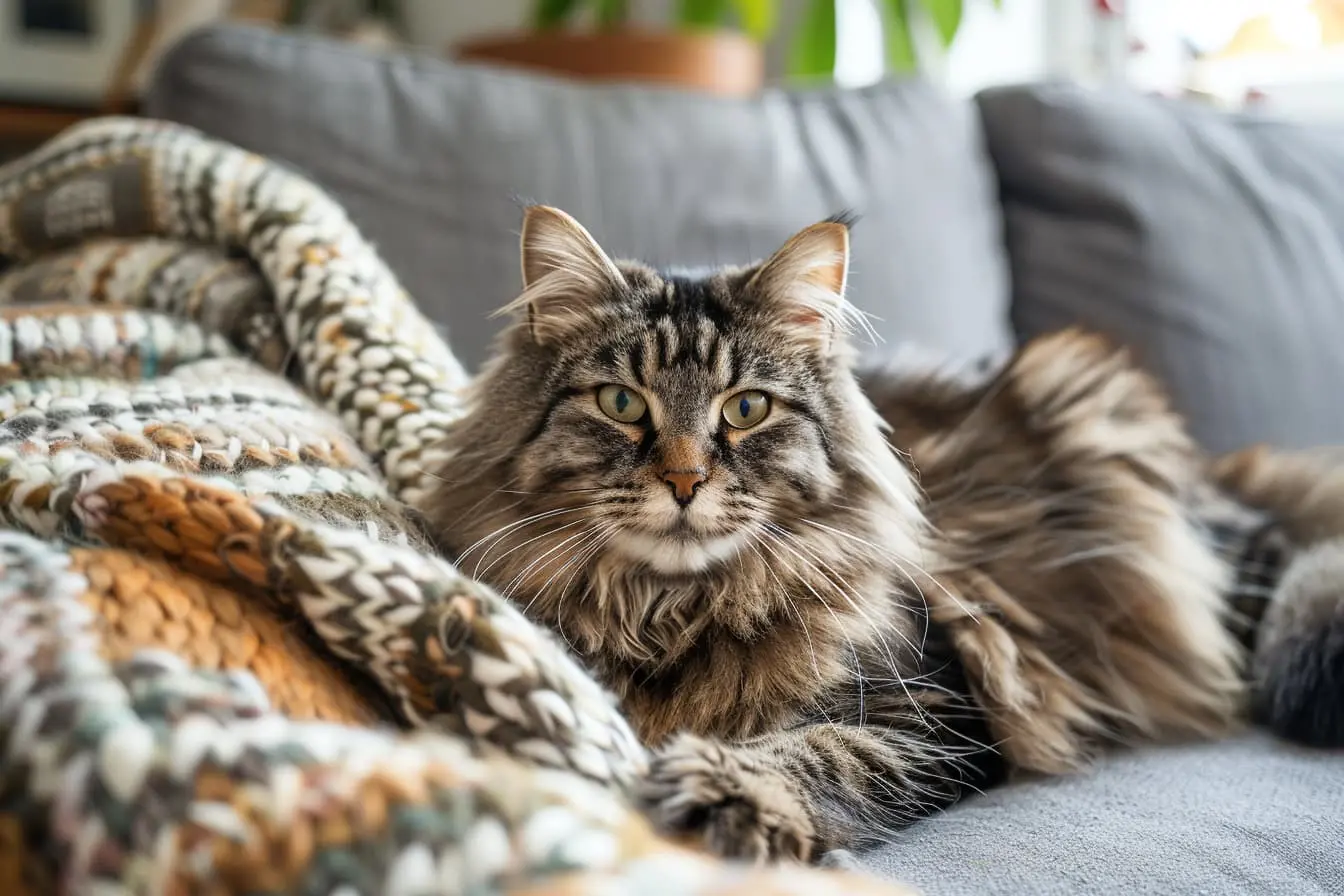
Norwegian Forest Cat: The Majestic Viking Companion – A Guide for Prospective Owners
Adopting a cat is a rewarding experience that brings a lot of joy, companionship, and a bit of mystery into your life. If you're drawn to the allure of the Norwegian Forest Cat, a breed steeped in Viking lore and known for its rugged beauty and charming personality, you're looking at a feline companion unlike any other. This guide delves into the essential aspects of Norwegian Forest Cats, from their history and temperament to their care needs and health considerations, helping you decide if this breed is the right match for you and your home.
Breed History and Characteristics
The Norwegian Forest Cat, also known as "Wegie" or "Skogkatt" in its homeland, has a rich history that dates back to the time of the Vikings. These cats are believed to have traveled with the Vikings, serving as efficient mousers on ships and farms. Their thick, water-resistant coats and sturdy build are adaptations to the harsh Scandinavian winters.
Norwegian Forest Cats are large, athletic animals with a striking appearance. They have long, flowing coats, tufted ears, and bushy tails, which contribute to their wild look. Despite their size, they are known for their graceful movement and agility.
Temperament
Wegies are known for their friendly, calm, and patient demeanour. They form strong bonds with their families and are particularly good with children and other pets, making them excellent family companions. Norwegian Forest Cats have a playful side and enjoy interactive toys and climbing structures. They are intelligent, independent, and can be quite vocal, with a wide range of chirps and meows used to communicate with their owners.
Health and Lifespan
Norwegian Forest Cats are generally robust and healthy, with a lifespan of 14 to 16 years. However, like all breeds, they are prone to certain genetic health issues, such as hypertrophic cardiomyopathy (HCM), glycogen storage disease type IV (a rare hereditary condition), and hip dysplasia. Regular veterinary check-ups and genetic testing by responsible breeders can help mitigate these risks.
Care and Grooming
Despite their luxurious double coat, Norwegian Forest Cats require surprisingly minimal grooming thanks to their coat's water-resistant properties. Weekly brushing is often enough to keep their fur in good condition, though shedding seasons in spring and fall may necessitate more frequent grooming. Regular ear cleaning, nail trimming, and dental care are also important to maintain their overall health.
Living Environment
Norwegian Forest Cats are adaptable and can thrive in various environments. They appreciate having outdoor access or, at the very least, a stimulating indoor environment with climbing trees, perches, and interactive toys. Their love for climbing and exploring makes vertical space just as important as horizontal space in their living area.
Training and Socialisation
These cats are quite trainable, thanks to their intelligence and curious nature. They respond well to positive reinforcement techniques, making it possible to teach them tricks, leash walking, and good manners around the house. Early socialisation is beneficial, especially if you have a busy household or other pets, as it helps the cat become well-adjusted and sociable.
Considerations for Prospective Owners
- Space and Enrichment: Wegies are active and curious, requiring ample space and environmental enrichment to keep them physically and mentally stimulated.
- Grooming Needs: While not as high-maintenance as some long-haired breeds, their grooming needs cannot be ignored, especially during shedding seasons.
- Healthcare Commitment: Awareness and readiness to address potential genetic health issues are important for prospective owners.
Conclusion
The Norwegian Forest Cat offers a unique combination of beauty, intelligence, and affection, making them a wonderful addition to the right home. Their gentle nature and adaptability make them suited for a variety of living situations and excellent companions for individuals and families alike. However, like all pets, they require commitment, understanding, and love to thrive.
If the characteristics and needs of the Norwegian Forest Cat resonate with you, and you're prepared for the responsibilities of cat ownership, this breed could indeed be the perfect new member of your family. Before making your final decision, consider visiting breeders or rescue organisations to meet these magnificent cats in person. This will give you a better sense of their size, temperament, and the care they require, ensuring you're well-prepared for the rewarding journey of cat ownership ahead. Remember, adopting a pet is a lifelong commitment that should be made with careful thought and consideration for the well-being of the animal and your lifestyle.
Vets near you
Speciality vets
- Aquatics vet specialists
- Birds vet specialists
- Camelids vet specialists
- Cats vet specialists
- Cattle vet specialists
- Deer vet specialists
- Dogs vet specialists
- Equines vet specialists
- Exotic vet specialists
- Goats vet specialists
- Pigs vet specialists
- Poultry vet specialists
- Sheep vet specialists
- Small Mammals vet specialists
- Wild vet specialists
Vet facilities
- Accessible by public transport
- Blood testing
- Car park nearby
- Client car park
- Dentistry
- Diagnostic imaging
- Disabled public access
- Flea and worm treatments
- Microchipping
- Mobile services
- Neutering
- Open at weekends
- Out-of-hours service
- Referral interests
- Referrals only
- Street parking outside
- Toilets available
- Vaccinations
